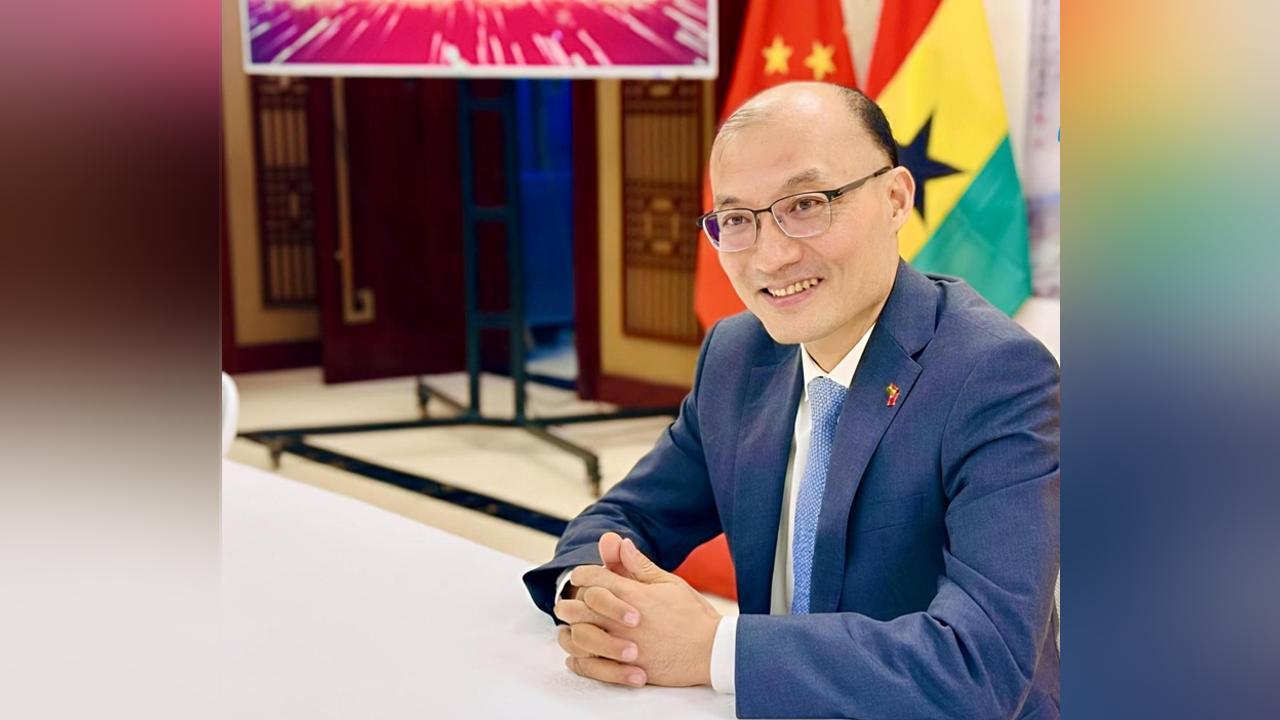Africa-Press – Ghana. Mr Tong Defa, the Chinese Ambassador to Ghana, has announced that Ghana will be among the first African countries to gain full zero-tariff access to the Chinese market.
He said the decision formed part of a new trade arrangement confirmed during President John Dramani Mahama’s recent state visit to Beijing, where the two leaders reached consensus on expanding bilateral economic cooperation.
The Ambassador, speaking at a press briefing at his residence in Accra, described the zero-tariff extension as one of the most significant outcomes of bilateral talks between President Mahama and Chinese President Xi Jinping.
He said technical teams from both sides were working to finalise implementation modalities to ensure the policy takes effect soon.
The policy provides zero-tariff treatment for 100 per cent of tariff lines on Ghanaian exports entering China.
This grants duty-free access to what Ambassador Tong described as “one of the world’s most promising and fastest-growing markets.”
China currently has a population of more than 1.4 billion people, with over 400 million middle-income earners expected to increase to 800 million in the coming years.
“Ghana will be among the first countries to benefit from the zero-tariff treatment for 100 percent tariff lines China offered to African countries that have diplomatic relations,” Ambassador Tong said.
He noted that the arrangement is unilateral and does not require Ghana to reciprocate with tariff concessions.
“China does not require reciprocal zero-tariffs from Ghana, nor does it seek to expand exports to Ghana,” he stated.
He described the policy as a proactive measure intended to support developing economies and stimulate industrial growth across Africa.
According to the Ambassador, Ghana stands to benefit significantly from increased exports and expanded industrial output once the zero-tariff policy becomes operational.
He explained that products such as cocoa and cocoa derivatives, cashew nuts, rice, shea butter, textiles, handicrafts, and other processed agricultural goods will find broader access into the Chinese market.
“After the implementation of the zero-tariff policy, Ghanaian products…can be better exported to China, which will activate production capacity, attract more investment, promote the continuous extension of the industrial chain, and drive overall industrial development,” he said.
The Ambassador highlighted that the timing aligns strongly with Ghana’s industrialisation agenda and the government’s proposed 24-Hour Economy policy.
He described the agreement as a direct contribution to that initiative, and that, “This is a pragmatic measure by China to support the ‘24-Hour Economy’, and we hope Ghana will benefit from it as early as possible.”
He cited earlier implementation of zero-tariff arrangements for 33 least-developed African countries after last year’s Forum on China-Africa Cooperation (FOCAC), noting that exports from those countries to China increased by nine percent between January and August.
He said China expects Ghana to experience similar gains once the agreement takes effect.
Ambassador Tong noted the rising popularity of African goods among Chinese consumers, including Ghanaian chocolate, South African wines, Rwandan chilli sauces, Senegalese tuna, Kenyan avocados and Beninese pineapples.
He said Ghana’s increasing participation at the China International Import Expo (CIIE), where local exhibitors recently showcased products such as cocoa, shea butter lotion, black soap and handicrafts, shows strong market demand.
Amb. Tong also emphasized Ghana’s strategic role as host of the African Continental Free Trade Area (AfCFTA) Secretariat and said the arrangement complements the continent’s wider economic integration agenda.
“China values Ghana as the location of the AfCFTA Secretariat. China’s market is always open to Ghana, and the door will open even wider,” he said.
The Ambassador expressed confidence that Ghanaian exporters, manufacturers and investors would seize the opportunity to scale up production and competitiveness.
He said hundreds of Chinese companies already operating in Ghana, including in infrastructure, mining, manufacturing, aviation, green energy and oil refining, stand ready to deepen cooperation and create jobs.
Ambassador Tong reiterated China’s belief that success was mutual and not exploitative, stressing that the zero-tariff policy reflects China’s commitment to real partnership and shared progress.
“We believe under the situation of trade wars and tariff wars, China’s offer will be a boost to Africa’s economy,” he said.
He urged the Ghanaian media to help raise public awareness of the opportunity and encouraged product developers to pursue value-addition to maximise benefits from the new market window.
For More News And Analysis About Ghana Follow Africa-Press







